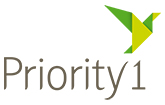
Everyone has a different life journey they’re on. But getting on top of key financial goals as you follow your own path could see you enjoying a more comfortable lifestyle and being ready for the next chapter to begin. This article is all about getting all your money matters sorted out, one decade at a time.
In your 20s
Get debt under control – the real danger in your 20s comes from building up debts that will need to be paid off before you can use your income for other financial goals. Buying a home, investing or saving for retirement – all these things can end up on pause indefinitely while you get debts under control.
Start investing – any investment is unlikely to earn more than you’d pay in interest on personal borrowing, so it’s important to pay debts down before getting started with investing. But investing while you’re young is important because the gains you can make through compounding returns really add up over time. Keeping surplus money in cash or in a bank account could leave your savings losing value thanks to inflation.
Get engaged with your super – super is likely to be one of your most tax-efficient ways to invest. So, give some thought to your super fund as one of several options to turn savings you have now into future income. Look for a low-cost fund with the profile that suits you. Of course you may want access to your investment earnings before you retire, so super shouldn’t be just the only part of your investing strategy.
In your 30s
Personal insurance – your 30s are often a time when commitments and responsibilities start to ramp up. Career, kids and a mortgage could all be coming into the picture. If you haven’t arranged personal insurance until now, make sure it’s on your checklist. You may have cover through your super fund, so remember to check your super statement and consider whether it’s enough cover to provide for your family.
Paying for education – if you have kids then private education fees may be on the cards in the years to come. Making some timely investments that can earn enough to cover those costs will save your cash flow from being squeezed when you may have many other big bills to pay for – household expenses, your mortgage and more.
Your super – as your super balance starts to grow through superannuation guarantee contributions, keeping an eye on things like fees and investment options will ensure you’re on track for a comfortable retirement in a few decades’ time.
In your 40s
Manage spending – the great news is you’re probably hitting your straps in your career and earning more. But living expenses can skyrocket at this time if you have a mortgage and kids are on the scene. It’s probably going to feel like you are time poor but struggling to make ends meet. Now is the time to focus on what you value and budget accordingly. A few small sacrifices will help you keep debts and spending under control, and save a little more for a time when you won’t be earning.
Reduce money stress – if you’re struggling to manage cash flow, focus on your spending and lifestyle priorities and feel like your finances are out of control, a financial plan can help. Knowing you’re taking steps to get a handle on money can really help you manage any stress you’re feeling about your financial future.
In your 50s
Get mortgage-free – if you still have a big home loan balance, now is the time to chip away with extra payments so you can get mortgage-free before retirement. Not only will it save you on interest in the longer-term, it means more of your retirement income can go towards ticking things off the bucket list, rather than keeping a roof over your head.
Invest wisely – once you’re in the clear with debt, consider putting any cash flow surplus into super. And as you get closer to retirement, it’s important to make sure your super is invested in a way that won’t put your savings and income at risk when you decide to retire.
In your 60s
Manage your savings and income – apart from your home if you own one, your super is likely to be your biggest asset at retirement. So, it makes sense to do some careful thinking and planning before making choices about how to maximise income from your retirement savings. Account-based pensions and annuities are two of the main retirement income products you may want to explore.
Get ready to hand over – being in the best of physical and financial health means you can look forward to a retirement with few restrictions. While you’re feeling and living well, it’s a good idea to get your Power of Attorney and estate plan arrangements organised. This will allow you to get the help you need if and when things change, and you’re less capable of taking care of your finances.
As always, contact us to discuss any matters relating to your financial plan.
